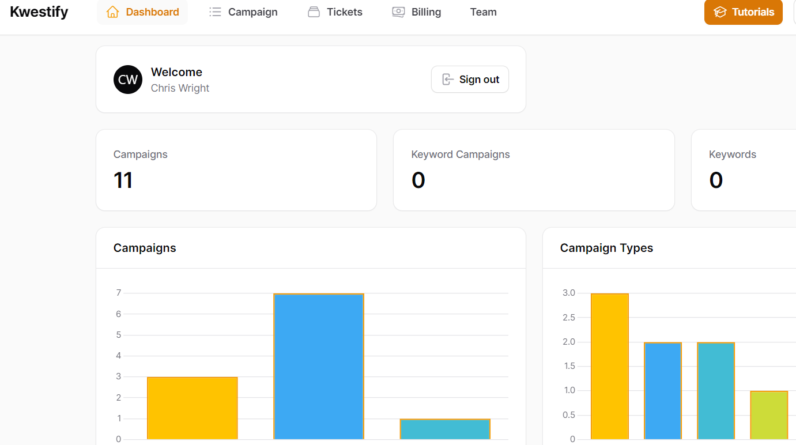
Are you curious about how affiliate marketing works? Well, look no further! In this article, we’ll break down the fundamentals of this popular online marketing strategy. From understanding the key players involved to learning how commissions are earned, you’ll gain a clear understanding of the inner workings of affiliate marketing. So, get ready to dive into the world of affiliate marketing and unlock the potential to earn passive income.
Affiliate Marketing Overview
Affiliate marketing is a popular marketing strategy used by businesses to expand their reach and increase sales. It involves a partnership between a merchant (or advertiser), an affiliate (or publisher), and the consumer. In this process, the affiliate promotes the merchant’s products or services on their platform, such as a blog or website, and earns a commission for every sale, lead, or click generated through their referral.
Definition of affiliate marketing
Affiliate marketing can be defined as a performance-based marketing approach where affiliates are rewarded for driving desired actions, such as sales, leads, or clicks, for a merchant’s products or services. It is a mutually beneficial relationship between the merchant, affiliate, and consumer, as the merchant gains exposure and sales, the affiliate earns commissions, and the consumer discovers valuable products.
Historical background of affiliate marketing
Affiliate marketing has its roots in the early 1990s when the concept of revenue sharing between online merchants and website owners emerged. The first affiliate program, launched by PC Flowers & Gifts in 1994, paved the way for the growth and development of this marketing strategy. Since then, affiliate marketing has undergone significant transformations and has become an essential part of many online businesses’ marketing efforts.
Key players in affiliate marketing
The key players in affiliate marketing include the merchant (or advertiser), the affiliate (or publisher), the consumer, and affiliate networks. The merchant is the party that offers products or services for sale and is responsible for setting up an affiliate program. The affiliate, on the other hand, promotes the merchant’s offerings through different channels and earns a commission for every successful referral. The consumer is the target audience who interacts with the affiliate’s promotional content and completes the desired action, such as making a purchase. Affiliate networks act as intermediaries, connecting merchants with suitable affiliates and providing tracking and payment solutions.
The Affiliate Marketing Process
The affiliate marketing process involves various stakeholders and steps that contribute to its effectiveness and success.
Merchant/advertiser
The merchant (or advertiser) initiates the affiliate marketing process by creating an affiliate program. They choose the commission structure, set the terms and conditions, and provide the necessary promotional materials for affiliates. The merchant’s goal is to increase sales and expand their brand reach by leveraging the affiliates’ marketing efforts and influence.
Affiliate/publisher
The affiliate (or publisher) is the driving force behind the affiliate marketing process. They select the merchant’s products or services that align with their niche or target audience. The affiliate promotes the merchant’s offerings through their website, blog, social media accounts, or other platforms. They play a crucial role in attracting and engaging consumers and encouraging them to take the desired actions, such as making a purchase or signing up for a service.
Consumer
The consumer is the ultimate target of the affiliate marketing efforts. They come across the affiliate’s promotional content and are enticed to explore the merchant’s products or services. The consumer’s decision to make a purchase or complete the desired action is influenced by the affiliate’s recommendations, reviews, or promotional materials.
Affiliate Networks
Affiliate networks serve as intermediaries between merchants and affiliates, helping to facilitate the tracking, reporting, and payments involved in affiliate marketing. They act as a centralized platform where affiliates can discover and join multiple affiliate programs, access promotional materials, and track their performance and earnings. Affiliate networks also provide support and guidance to both merchants and affiliates, ensuring a smooth and efficient affiliate marketing experience.
Types of Affiliate Marketing
There are various types of affiliate marketing models, each offering different commission structures and incentives for affiliates.
Pay per sale (PPS)
Pay per sale is one of the most common types of affiliate marketing, where affiliates earn a commission for every sale they generate for the merchant. The affiliate is typically provided with a unique tracking link or code that ensures proper attribution of sales. This model ensures that affiliates are rewarded based on their ability to drive actual purchases and generate revenue for the merchant.
Pay per lead (PPL)
Pay per lead affiliate marketing focuses on generating qualified leads for the merchant. Instead of earning a commission based on actual sales, affiliates are compensated for each successful lead they generate. The lead may involve filling out a form, subscribing to a newsletter, or requesting more information. This model is commonly used in industries where capturing leads is crucial for the business’s success.
Pay per click (PPC)
Pay per click affiliate marketing allows affiliates to earn a commission for every click they generate on the merchant’s promotional materials. This model does not require the consumer to make a purchase or convert into a lead. Instead, affiliates are rewarded based on the number of clicks their promotional content receives. It is often used by affiliates who have a large audience and high traffic volume on their websites or social media accounts.
Two-tier programs
Two-tier affiliate programs provide an opportunity for affiliates to earn commissions not only for their direct referrals but also for recruiting other affiliates. Affiliates receive a commission from the sales or referrals made by the affiliates they have recruited. This model encourages affiliates to not only promote the merchant’s products or services but also build a network of their own, further expanding the merchant’s reach.
Benefits of Affiliate Marketing
Affiliate marketing offers numerous benefits for both merchants and affiliates, making it an attractive marketing strategy.
Low risk and cost-effective
Affiliate marketing is a low-risk marketing approach for merchants as they only pay commissions when desired actions are completed. Compared to traditional advertising methods, where merchants incur upfront costs, affiliate marketing allows them to reach a broader audience without significant financial risk. Affiliates also benefit from this low-risk model, as they can start promoting products and earning commissions without upfront investment.
Increased brand exposure
By partnering with affiliates, merchants can greatly increase their brand exposure and reach. Affiliates promote the merchant’s products or services on their platforms, which can include websites, blogs, social media accounts, and other online channels. This exposure can attract new customers who may not have been aware of the merchant’s offerings. The increased visibility and positive recommendations from affiliates can enhance the merchant’s brand reputation and credibility.
Performance-based incentives
Affiliate marketing is a performance-based marketing strategy, where affiliates are rewarded based on their ability to drive desired actions. This incentivizes affiliates to put in their best efforts and maximize their promotions to generate more sales, leads, or clicks. Merchants benefit from this performance-based approach as they only pay for actual results, ensuring a higher return on investment compared to traditional advertising methods.
Vast network of publishers
One of the biggest advantages of affiliate marketing is the vast network of publishers available to merchants. Affiliates come from various niches and industries, each with their unique audience and expertise. This diversity allows merchants to tap into different markets and demographics, expanding their customer base and potentially reaching new target audiences. Additionally, affiliates often have established relationships with their audience, which can enhance trust and credibility for the merchant’s brand.
Challenges in Affiliate Marketing
While affiliate marketing offers many benefits, it also presents several challenges that both merchants and affiliates need to overcome.
Fraudulent activities
Affiliate marketing is not immune to fraudulent activities, such as click fraud, cookie stuffing, or false leads. These fraudulent practices can result in inflated commissions for affiliates and financial losses for merchants. It is crucial for both parties to implement effective fraud detection and prevention measures to minimize such risks and maintain the integrity of the affiliate marketing ecosystem.
Quality and relevancy control
Maintaining the quality and relevancy of affiliate promotions can be challenging, especially when affiliates have different marketing strategies and target audiences. Merchants need to ensure that the promotional materials provided to affiliates accurately represent their brand and adhere to their standards. Likewise, affiliates need to carefully select the merchants they promote to ensure alignment with their audience’s expectations and interests.
Competitive market
Affiliate marketing has become highly competitive, with numerous affiliates vying for the attention of consumers. This saturation can make it challenging for affiliates to stand out and attract a significant share of the market. It is essential for affiliates to differentiate themselves through unique value propositions, engaging content, and a strong understanding of their audience’s needs.
Tracking and attribution
Accurate tracking and attribution of affiliate sales, leads, or clicks can be a complex process. With multiple affiliates promoting the same products or services, it is crucial to ensure proper attribution of conversions to the correct affiliate. Merchants need to implement reliable tracking systems and clear attribution rules to fairly compensate affiliates for their contributions.
Affiliate Marketing Tools and Technologies
Various tools and technologies have been developed to streamline and enhance the affiliate marketing process.
Affiliate tracking software
Affiliate tracking software is a key tool in managing and tracking affiliate marketing activities. It allows merchants to attribute sales, leads, or clicks to specific affiliates, providing accurate data for commission calculations. Affiliate tracking software also facilitates the generation of unique tracking links or codes for affiliates, ensuring proper attribution of conversions.
Data analytics
Data analytics plays a vital role in affiliate marketing, enabling merchants to gather insights into their affiliate program’s performance and effectiveness. By analyzing data related to clicks, conversions, traffic sources, and more, merchants can identify trends, optimize their promotions, and make informed decisions to drive better results.
Coupon and deal sites
Coupon and deal sites are popular among affiliates and consumers alike, offering discounted prices or exclusive deals for products or services. These sites attract consumers actively seeking discounts or promotions, making them a valuable platform for affiliates to promote merchant offerings and drive conversions. Merchants can partner with coupon and deal sites to expand their reach and attract cost-conscious consumers.
Social media platforms
Social media platforms, such as Facebook, Instagram, YouTube, and Twitter, have become powerful marketing channels for affiliates. These platforms allow affiliates to target specific demographics, engage with their audience through content, and promote merchant products or services effectively. Social media platforms offer a wide range of engagement and advertising options, enhancing the visibility and reach of affiliate promotions.
Best Practices for Affiliate Marketing Success
To maximize the success of affiliate marketing campaigns, both merchants and affiliates should follow these best practices:
Finding the right affiliates
Merchants should carefully select affiliates who align with their brand values, target audience, and marketing goals. Similarly, affiliates should research and choose merchants whose products or services resonate with their audience. Building a strong partnership based on mutual interests and compatibility is essential for long-term success.
Setting clear goals and expectations
Both merchants and affiliates should clearly define their goals and expectations from the affiliate marketing relationship. This includes commission structures, promotional materials, target audience, desired actions, and tracking and reporting processes. Clear communication and transparency are vital in ensuring a fruitful and collaborative partnership.
Providing quality promotional materials
Merchants should provide high-quality promotional materials, such as banners, product images, videos, and text links, to affiliates. These materials should accurately represent the merchant’s brand and products and be easily customizable by the affiliates. Affiliates should leverage these materials effectively, ensuring they complement their content and resonate with their audience.
Tracking and optimizing performance
Both merchants and affiliates should regularly track and analyze the performance of their affiliate marketing efforts. This includes monitoring key metrics such as conversions, click-through rates, traffic sources, and overall revenue. By analyzing this data, both parties can identify areas for improvement, optimize their promotions, and make data-driven decisions to drive better results.
Legal and Ethical Considerations in Affiliate Marketing
Affiliate marketing operates within a legal and ethical framework that both merchants and affiliates must adhere to.
Disclosure and transparency
Affiliates must be transparent about their relationship with the merchant by clearly disclosing that they may receive commissions for referrals. This disclosure should be prominently displayed on their websites or in their social media posts, ensuring consumers are aware of the affiliate’s financial interest in promoting certain products or services.
Compliance with regulations
Affiliate marketing is subject to various regulations, including consumer protection laws and data privacy regulations. Merchants and affiliates must comply with these regulations, ensuring their marketing practices are lawful and protect consumer rights. This includes obtaining necessary permissions for data collection and storage and adhering to guidelines related to advertising, endorsements, and endorsements.
Avoiding deceptive practices
Both merchants and affiliates should avoid engaging in deceptive practices that mislead consumers or manipulate their purchasing decisions. This can include false claims, misleading promotions, or dishonest reviews. Honesty, integrity, and transparency are key principles in maintaining a trustworthy and ethical affiliate marketing ecosystem.
Case Studies: Successful Affiliate Marketing Campaigns
Several successful affiliate marketing campaigns have made a significant impact on the industry. Here are a few notable examples:
Amazon Associates Program
The Amazon Associates Program is one of the most well-known and successful affiliate marketing programs. Amazon offers a wide range of products and has a massive network of affiliates who promote their offerings. The program’s success can be attributed to its user-friendly interface, extensive product range, competitive commission rates, and reliable tracking and reporting systems.
CJ Affiliate by Conversant
CJ Affiliate by Conversant is a leading affiliate marketing network that connects merchants with qualified affiliates. The platform offers advanced tracking and reporting capabilities, allowing merchants to monitor their affiliate program’s performance and optimize their campaigns. CJ Affiliate has a diverse network of affiliates, providing merchants with access to various niche markets and audiences.
ClickBank
ClickBank is a renowned affiliate marketplace that specializes in digital products such as e-books, online courses, and software. The platform offers a wide selection of products across multiple categories, making it attractive to affiliates with diverse audiences. ClickBank’s high commission rates and reliable payment systems have contributed to its popularity among both merchants and affiliates.
Future Trends in Affiliate Marketing
As technology advances and consumer behaviors evolve, several trends are shaping the future of affiliate marketing.
Influence of AI and machine learning
Artificial intelligence (AI) and machine learning are revolutionizing various industries, including affiliate marketing. AI-driven algorithms can analyze vast amounts of data to identify consumer preferences, predict buying behaviors, and optimize affiliate promotions. Machine learning techniques can also automate and personalize affiliate content delivery, enhancing the overall consumer experience.
Shift towards influencer marketing
Influencer marketing is becoming increasingly popular within the realm of affiliate marketing. Influencers, who have a substantial following and strong influence over their audience, partner with merchants to promote their products or services. This collaboration allows merchants to leverage the influencer’s credibility and trust to drive conversions. The integration of affiliate links within influencer content provides a seamless transition from promotion to purchase.
Cross-channel attribution
Cross-channel attribution aims to provide a holistic view of the customer journey and accurately attribute conversions across different marketing channels. This trend recognizes that consumers interact with multiple channels before making a purchase, and each channel contributes to the final conversion. Implementing cross-channel attribution in affiliate marketing allows merchants to fairly reward affiliates for their role in the consumer’s path to conversion.
In conclusion, affiliate marketing is a dynamic and effective marketing strategy that benefits both merchants and affiliates. It involves a collaborative effort between merchants, affiliates, and consumers to drive sales, leads, or clicks. By understanding the affiliate marketing process, different types, benefits, challenges, and utilizing tools and technologies, businesses can maximize their affiliate marketing success. Following best practices, complying with legal and ethical considerations, learning from successful case studies, and embracing future trends will further enhance the effectiveness and relevance of affiliate marketing in the evolving digital landscape.






